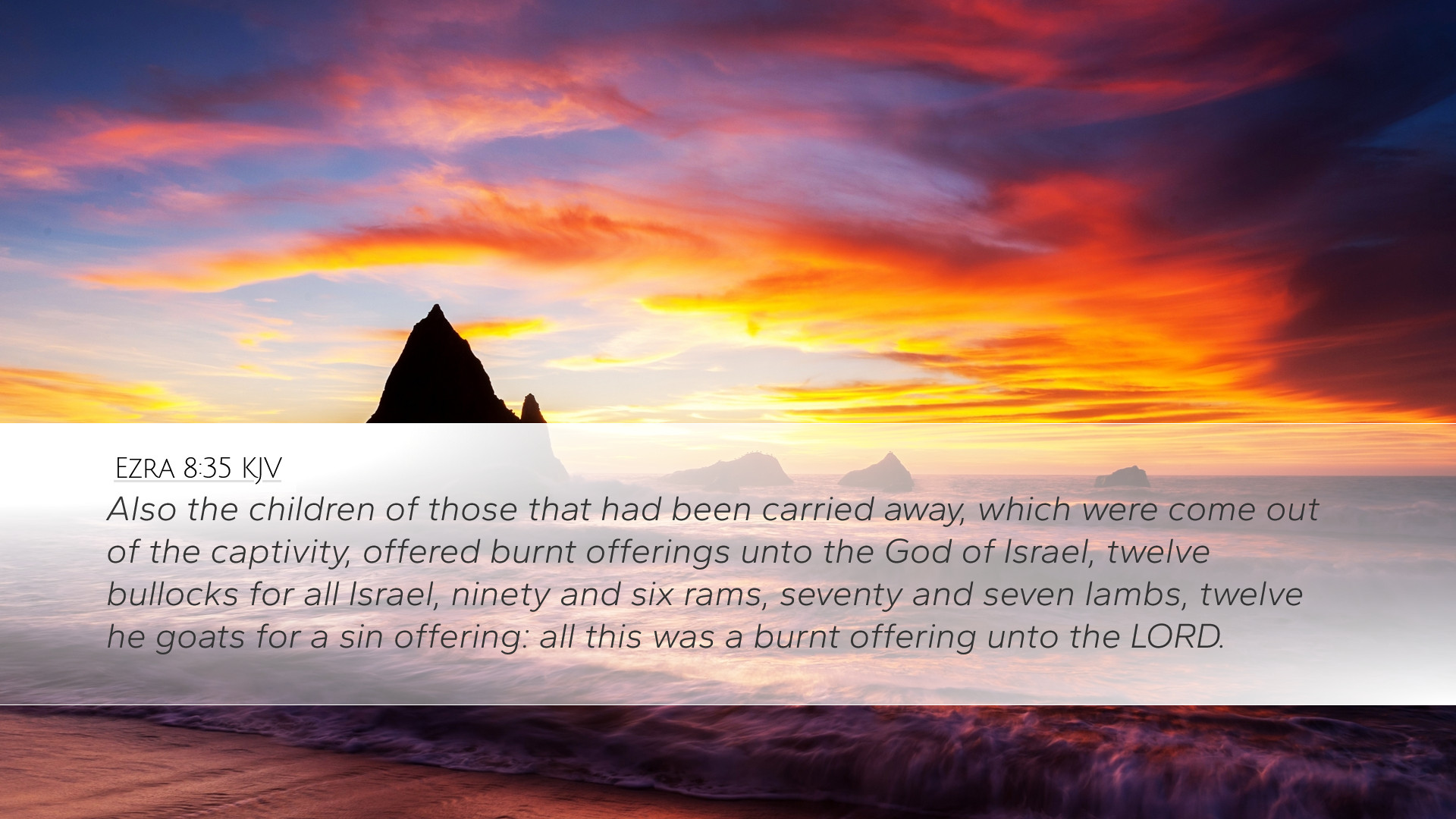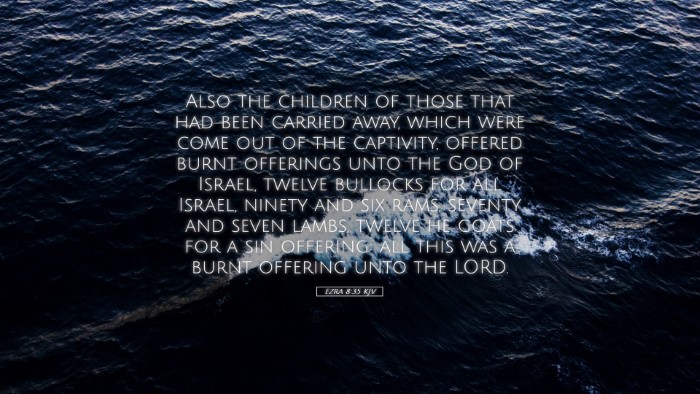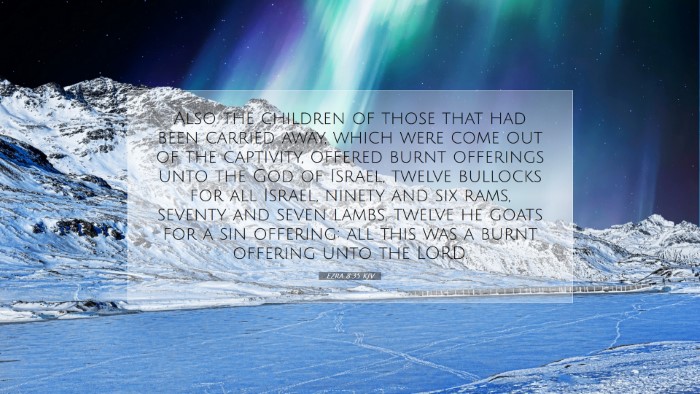Bible Commentary on Ezra 8:35
Verse Context: Ezra 8:35 states, “And they delivered the king’s commissions unto the king’s lieutenants, and to the governors on this side the river: and they furthered the people, and the house of God.” This passage occurs during the return of the exiles after the Babylonian captivity, led by Ezra. Understanding the implications of this verse offers profound insights into themes of authority, divine providence, and community restoration.
Introduction
In this verse, Ezra portrays the logistical and administrative aspects of the return from exile, underscoring the importance of clear governance and support from authority figures. The context of Ezra 8 reveals the challenges faced by the returning exiles and how divine assistance is often channeled through earthly authorities. This commentary draws on insights from Matthew Henry, Albert Barnes, and Adam Clarke.
Commentary Insights
1. The Role of Authority
Matthew Henry emphasizes the significance of the king’s commissions in this passage. He notes that Ezra's success in leading the exiles hinges significantly on the support and authority granted by the Persian king. The act of delivering the commissions signifies a divine orchestration where God prepares the hearts of kings to fulfill His purposes. This points to the broader theological principle that God governs human affairs, positioning leaders to assist in the restoration of His people.
Furthermore, Albert Barnes illustrates that authority figures serve as instruments of God's will. The support given by the “king's lieutenants” and “governors” reflects a hierarchical structure that is often essential in achieving communal goals. Barnes posits that Ezra’s strategy in appealing to such powers demonstrates wisdom in utilizing available resources for advancing God's work, an important lesson for contemporary church leaders.
2. Community and Collective Endeavor
The phrase “they furthered the people” connects to the collective effort required for community restoration. Adam Clarke points out that the term used here not only pertains to the physical aspects of rebuilding but also speaks to the moral and spiritual rejuvenation of the people. Clarke suggests that the successful delivery of the commissions directly correlates with the people’s commitment to restoring the temple and worship practices, highlighting the intrinsic link between governance and community religious life.
Moreover, the necessity of community involvement is echoed throughout scripture, reinforcing the theme that individual faith should be coupled with communal action for holistic restoration. This aligns with contemporary ecclesiological discussions around the importance of community in organizational health and spiritual vitality.
3. Divine Providence in Human Affairs
Ezra’s leadership in this context serves as an example of divine providence. As noted by Matthew Henry, the successful execution of Ezra’s mission was undergirded by God’s sovereignty. The commissions from King Artaxerxes were not mere administrative documents; they were instruments of God's providential care for His people. Henry emphasizes the theological underpinnings of providence—God meticulously governs the details of our lives, ensuring the right people are in pivotal positions to assist His people in fulfilling their divine destinies.
Albert Barnes further affirms this view by discussing how God influences the hearts of rulers. This narrative serves as a reminder that secular authority can often reflect divine favor. Pastors and church leaders can draw lessons from this encounter, recognizing that they must remain sensitive to God’s guidance through established authorities and societal structures.
Theological Implications
1. The Sovereignty of God
This verse solidifies the understanding of God's sovereignty over all creation. It emphasizes that no earthly power exists without God's domain. The actions of the king reflect a higher divine agenda, reinforcing the belief that God is ultimately in control. This is comforting for believers facing adversity or seeming injustices in their communities.
2. Responsibility of God’s People
Ezra’s narrative also conveys a strong message regarding the responsibilities of God's people. Just as Ezra and the returning exiles experienced God’s favor through their efforts, churches today are called to actively seek restoration in their communities, relying upon and cooperating with God’s providential hand. The obligation of the church is to embody the mission of restoration, just as Ezra did.
Conclusion
Ezra 8:35 serves as a profound reminder of the intricate relationship between divine providence, authority, and community restoration. Pastors, students, and theologians glean from this passage the importance of recognizing God's sovereignty in all situations and the necessity for church leaders to engage with established authorities to facilitate God’s work. The insights drawn from the works of Matthew Henry, Albert Barnes, and Adam Clarke enrich the understanding of the challenges and victories associated with community restoration, urging a holistic approach to faith that involves both divine grace and human cooperation.


